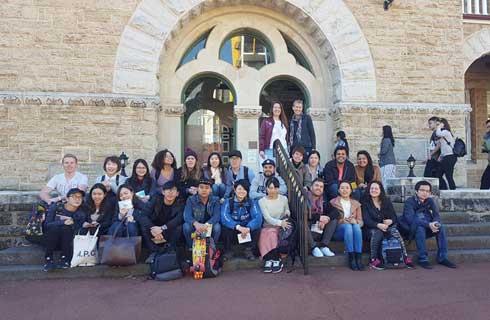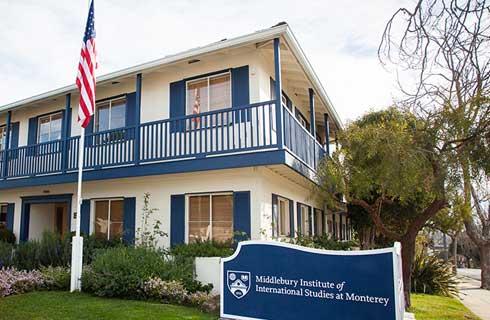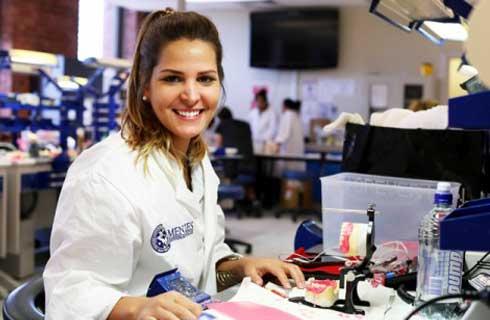电气工程哲学博士
Doctor of Philosophy in Electrical Engineering

学历文凭
Ph.D.

专业院系
P.C. Rossin College of Engineering and Applied Science

开学时间

课程时长

课程学费

国际学生入学条件
BS in EE, CompE, CS, or related field
GPA: 3.0/4.0 required for Ph.D.
2.75/4.0 required for MS
Minimum Test Requirements:
GRE General Test - School code: 2365, Dept code for EE: 1203; Dept code for CompE: 1201
75th percentile or better on Quantitative
Please note: GRE scores are not required for the 2024 admission cycle, which includes the spring, summer, and fall 2024 start terms.
iBT TOEFL - School code: 2365, Dept code for EE: 66; Dept code for CompE: 78; 79 Composite Score (20 Writing, 20 Speaking, 20 Reading, 15 Listening)
IELTS: 6.5 Overall Minimum Band Score (6.0 Writing, 6.5 Speaking, 6.5 Reading, 6.0 Listening)
Duolingo English Test (DET) - 125 Overall
IDP—雅思考试联合主办方

雅思考试总分
6.5
- 雅思总分:6.5
- 托福网考总分:79
- 托福笔试总分:550
- 其他语言考试:NA
CRICOS代码:
申请截止日期: 请与IDP联系 以获取详细信息。
课程简介
The rapidly growing graduate program in Electrical Engineering is uniquely positioned to advance enabling technologies that drive revolutionary developments in nanotechnology, biotechnology, optical technologies, information and communications technologies, and sensors and sensor networks. Electrical and Computer Engineering faculty maintain nationally funded programs in critical research areas such as compound semiconductor optoelectronic devices, silicon photonics, optical communications, displays, microelectronics fabrication, MEMS, bioengineering, wireless communications and networking, sensing, signal processing, code-division multiple access, and space-time coding. Individual projects include DNA testing on a chip, ion-channel transport in biological cells, nanoelectronics, engineered nanosystems, bioMEMS, wide-bandgap UV semiconductor devices, quantum dot IR materials, silicon photonics, flexible organic displays, high-frequency compound semiconductor devices for wireless communications, sensor fusion, wireless channel access, and encryption. Interdisciplinary projects are carried out with researchers in the departments of chemical engineering, and materials science and engineering, and physics in the areas of nanoelectronics, optoelectronics, and bioengineering.
相关申请
 预科
预科 奖学金
奖学金 实习机会
实习机会 在校学习
在校学习 跨境学习
跨境学习 校园授课-线上开始
校园授课-线上开始 在线/远程学习
在线/远程学习
开学时间&学费
学费信息仅供参考,请与IDP联系以获取详细信息
| 开学时间 | 时长 | 学费 | 地点 |
|---|
学校排名

世界排名501
数据源:
泰晤士高等教育世界大学排名
关于里海大学

这里的口号是:努力学习,尽情嬉戏这所排名38的私立研究型大学有三分之一的学生加入了各种兄弟会姐妹会,因此每到周五晚上,整个校园非常安静,但这并不意味着Lehigh的学生学习不行。Lehigh University的工程学院和教育学院均为全美Top40,其中一些相关专业更是进入到全美20强。Lehigh攻读工科和商科的学生各占1/3,但实际上学校希望也允许学生修读跨专业的内容,如果你愿意,你甚至可以自己发明一个专业。在Lehigh,除了第一年的英语课程,教授们会亲自上所有的课程。Lehigh的全/半奖不多,但如果你在校期间表现优异,还是可以通过Dean’s Scholars获得每年10000美元的鼓励。2003年美国哥伦比亚号航天飞机失事,该事故造成机上所有7名宇航员遇难,事故之后NASA(美国国家航空航天局)请里海大学协助分析残骸。因为里海大学先进的显微镜技术,材料科学和工程学院的学生们成为当时第一批对残骸进行调查研究的人员。
本校相关课程
其他相关课程
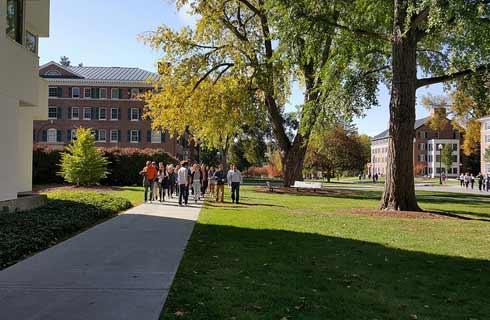
电气与计算机工程哲学博士
 滑铁卢大学
滑铁卢大学学历文凭
Ph.D.
开学日期
课程费用总额

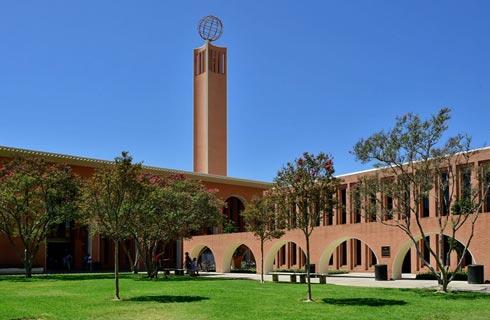
电气工程学士学位
 多伦多都会大学
多伦多都会大学学历文凭
Bachelor Degree
开学日期
课程费用总额


电子工程技术员文凭
 尼亚加拉学院
尼亚加拉学院学历文凭
Bachelor Degree
开学日期
课程费用总额

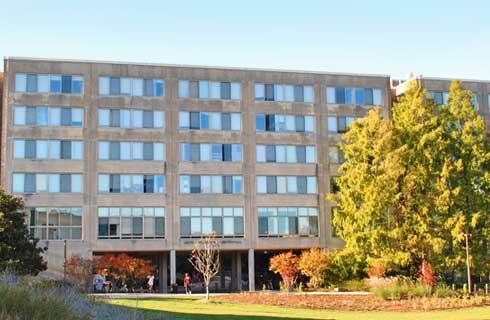
电子工程技术高级文凭(合作社)
 尼亚加拉学院
尼亚加拉学院学历文凭
Bachelor Degree
开学日期
课程费用总额


电子工程技术员文凭
 德恒学院
德恒学院学历文凭
Bachelor Degree
开学日期
课程费用总额


电气工程技术员文凭
 德恒学院
德恒学院学历文凭
Foundation for Undergraduate
开学日期
课程费用总额










 美国
美国
